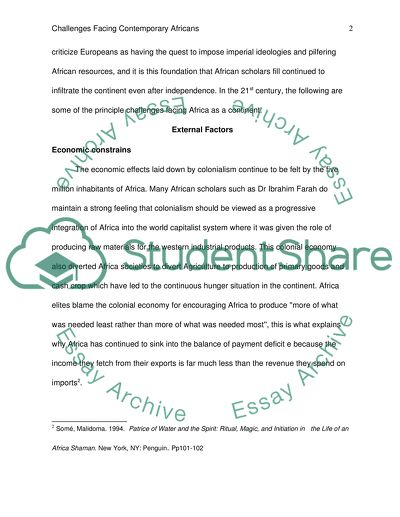Cite this document
(“Are the Challenges Facing Contemporary Africans the Product of Research Paper”, n.d.)
Retrieved from https://studentshare.org/history/1393436-are-the-challenges-facing-contemporary-africans
Retrieved from https://studentshare.org/history/1393436-are-the-challenges-facing-contemporary-africans
(Are the Challenges Facing Contemporary Africans the Product of Research Paper)
https://studentshare.org/history/1393436-are-the-challenges-facing-contemporary-africans.
https://studentshare.org/history/1393436-are-the-challenges-facing-contemporary-africans.
“Are the Challenges Facing Contemporary Africans the Product of Research Paper”, n.d. https://studentshare.org/history/1393436-are-the-challenges-facing-contemporary-africans.


